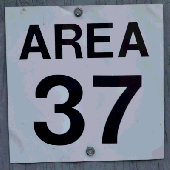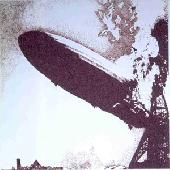-
Wed 3rd Oct 2012 14:09 #1 / 34"I shall pass this but once, any good I can do, or kindness I can show; let me do it now. Let me not difer nor neglect it, for I shall not pass this way again." -Stephen Grellet
I seem to be able to get myself established in most games, but how do you take your position from being established (being able to defend yourself adequately, having some strategic positions ect.) and move it to winning or dominating.
Some things I have been trying (without much success)
1. Start checking other players that are leading - take a continent or bonus away
2. Try to occupy more bonus for self (this usually attracts alot of attention though)
3. Beef up the defenses (but this usually doesn't end well)
So what's the strategy/ies that take a player from an established position to winning?
-
Wed 3rd Oct 2012 16:06 #2 / 34
If I only knew...
-
 Wed 3rd Oct 2012 16:07 #3 / 34
Wed 3rd Oct 2012 16:07 #3 / 34
Each game is different of course.
All of your options are good, but each has a potential downside.
1) Is a pain because while you two are fighting someone else is building
2) Is a pain because you don't want to be the guy other people are watching out for
3) Is usually good, but you can't look like you are trying to do it. And usually you have to take something to get a card.
The best is when other people are attacking each other while you hang out.
So I think you try to get established, grow slowly and hope an opportunity comes your way. If you have to hit someone you do, but usually you leave it to other people.
-
 Wed 3rd Oct 2012 17:46 #4 / 34
Wed 3rd Oct 2012 17:46 #4 / 34
Amidon37 wrote:
The best is when other people are attacking each other while you hang out.
This is the best advice IMO... it's normally always best to be #2 until you're ready to truly move, otherwise you're just wasting troops and painting a big target on yourself.
-
 Wed 3rd Oct 2012 17:57 #5 / 34
It should be possible to play WG boards in real-time ..without the wait, regardless of how many are playing.
Wed 3rd Oct 2012 17:57 #5 / 34
It should be possible to play WG boards in real-time ..without the wait, regardless of how many are playing.I think on standard types of boards, and generally speaking, the severity of the fog should be proportional to the aggressiveness of your play. If people can't see what you're doing, you can spread yourself a bit thinner and get away with that extra bonus army, or even steal a continental bonus that you normally wouldn't get away with.
https://sites.google.com/site/m57sengine/homeEdited Wed 3rd Oct 18:00 [history]
-
 Wed 3rd Oct 2012 18:17 #6 / 34
"I shall pass this but once, any good I can do, or kindness I can show; let me do it now. Let me not difer nor neglect it, for I shall not pass this way again." -Stephen Grellet
Wed 3rd Oct 2012 18:17 #6 / 34
"I shall pass this but once, any good I can do, or kindness I can show; let me do it now. Let me not difer nor neglect it, for I shall not pass this way again." -Stephen GrelletSometimes I feel like there comes a time when you have grown enough that you have to move, or You're just as Yertle says, a big target.
-
 Wed 3rd Oct 2012 19:42 #7 / 34
Wed 3rd Oct 2012 19:42 #7 / 34
Sure - But BlackDog made a post a while back that I learned from -
He said there are times where he just ends his turn.
I think that's basically what he is talking about - sometimes it is better to do nothing then grow to be the biggest player -
But, also there is a time in each game when the waiting around is over and you take your best shot.
-
 Wed 3rd Oct 2012 21:59 #8 / 34
"If an incompetent chieftain is removed, seldom do we appoint his highest-ranking subordinate to his place" - Attila the Hun
Wed 3rd Oct 2012 21:59 #8 / 34
"If an incompetent chieftain is removed, seldom do we appoint his highest-ranking subordinate to his place" - Attila the HunThe best players I've played against on this site do these things:
1) Choose their battles well
2) Wait til the right time, then move big.
3) Establish position before position is established. This basically means that in the early game, while there is general chaos, the best players are already thinking ahead to the position they want in the mid-game.
-
 Thu 4th Oct 2012 08:55 #9 / 34
Thu 4th Oct 2012 08:55 #9 / 34
There are lots of good points here, I will add something from a different perspective. On some boards there is not one or two turns where you convert yourself into a winning position. Instead, you slowly evolve over 5 or 10 turns into a dominant position. For example, you may have a bonus advantage of 2 units per turn and be in a situation where you are unattractive to attack. After 10 turns it may suddenly dawn on everyone else that you are unassailable. So, the keys for me when you do something like this is to look for 'sustainable' advantages. Even the smallest bonus advantage can be powerful if it is sustainable. In, 1 v 1 WGWF, a +2 per turn will almost always win you the game. For Simulgear games, +5 per turn is enough.
So, my summation is - sometime you can win like a creeping flood instead of a hurricane.
-
 Thu 4th Oct 2012 13:15 #10 / 34
Thu 4th Oct 2012 13:15 #10 / 34
I think on standard types of boards, and generally speaking, the severity of the fog should be proportional to the aggressiveness of your play. If people can't see what you're doing, you can spread yourself a bit thinner and get away with that extra bonus army, or even steal a continental bonus that you normally wouldn't get away with.
+1
The above applies for medium fog and up. Light fog on the other hand is a totally different beast. In a light fog game, your enemies can see the territory you control, but not how many units you have. In this setup, expanding quickly is often more dangerous than in no-fog games. It is better in my opinion to keep your bonus close to that of the leaders, while defending adequately and stowing away reserves for your big moment.
These days I tend to avoid playing no-fog games, as they tend towards stalemate situations. This is especially the case when all of the players are experienced.
Edited Thu 4th Oct 13:29 [history]
-
 Sun 7th Oct 2012 06:41 #11 / 34
"Battles are won by slaughter and maneuver. The greater the general, the more he contributes in maneuver, the less he demands in slaughter" - Winston Churchill
Sun 7th Oct 2012 06:41 #11 / 34
"Battles are won by slaughter and maneuver. The greater the general, the more he contributes in maneuver, the less he demands in slaughter" - Winston ChurchillIn multiple player games you can cut the game in roughly 3 fases.
Early game: Don't get eliminated. Determine your position on the board. Sometimes it's better to settle for 2nd best if this guarantees the main objective in this fase. Don't get eliminated.
Mid-game: Keep up with the strongest and get rid of the weakest. Time to lower the number of players. The game needs to finish, so go ahead and contribute to lowering the number of players. Usually you gain some land in the process. If one player get's too big try to keep it under control.
Endgame: Now that there are just 3 or 4 players left you can try to control the board. Balancing is key here. Get to head-up if you're strongest. Avoid heads-up if you're not. The game dynamic game can change each turn in this fase. The biggest player wants to go to heads-up, the other two will try to prevent it. Therefore the game will have a constant changing natural alliance of the small players vs the biggest one. Try to find out how opponents respond to different action of yours and who's most likely to make any mistakes. Try to pressure opponents to force them to make mistakes. If they do; go ahead and take the win.
-
 Sun 7th Oct 2012 06:50 #12 / 34
"Battles are won by slaughter and maneuver. The greater the general, the more he contributes in maneuver, the less he demands in slaughter" - Winston Churchill
Sun 7th Oct 2012 06:50 #12 / 34
"Battles are won by slaughter and maneuver. The greater the general, the more he contributes in maneuver, the less he demands in slaughter" - Winston ChurchillBlackDog wrote:
These days I tend to avoid playing no-fog games, as they tend towards stalemate situations. This is especially the case when all of the players are experienced.
Althought I do admit a fair number of non-fog games end up in a stalemate, I'd like to nuance the statement it happens more often when players get more experienced. In my opinion it's just the lack of agression, creativity and understanding of the endgame dynamics that drives players in a heavy passive and often defensive positions which cause stalemates.
You only need two good players to lower the numbers of armies and get out of the stalemate. I usually get stalemates with opponents with ratings somewhere between 1500-2000. They do understand the concepts of early- and mid-game stategie but they can't change their mindset to endgame strategie.
Edited Sun 7th Oct 06:50 [history]
-
 Sun 7th Oct 2012 08:44 #13 / 34
It should be possible to play WG boards in real-time ..without the wait, regardless of how many are playing.
Sun 7th Oct 2012 08:44 #13 / 34
It should be possible to play WG boards in real-time ..without the wait, regardless of how many are playing.Luieuil wrote:
You only need two good players to lower the numbers of armies and get out of the stalemate. I usually get stalemates with opponents with ratings somewhere between 1500-2000. They do understand the concepts of early- and mid-game stategie but they can't change their mindset to endgame strategie.
Count me in that 1500-2000 category.. and so it is that I respectfully disagree (with the full understanding that Luieuil is a higher echelon player).
With three evenly matched players strategically and equally positioned to attack each other on a standard non-fogged map, I think it doesn't matter if they're all 1500 types or players of the 2500 variety. Patient, less aggressive players tend to prevail, and if all are equally patient, you're going to end up with a stalematish game. The reason: Everyone has too much information. Going on the offensive against one opponent leaves both the attacker and the defender weakened, and the non-involved player comes out ahead for the following reasons:
- In the case where the attacked player's turn immediately follows, he is usually obliged to at least win back lost territory to regain lost bonuses, and the non-participating player now has the luxury of deciding which player is most vulnerable.
- In the case where the non-attacked player's turn immediately follows (yes he too can elect to attack the weakened player) BUT a better strategy is either to invade the original attacker (who has ostensibly left his guard down and thinned his forces to execute his original attack), or to remain passive and let the two fighting players resolve their costly boundary disputes.
In either case, the third, non-participating player is in the cat-bird seat. That's pretty much all I've got, but I'm not a top player. So L, (and I not trying to be smug - I realize that attitude is easily misinterpreted in posts) can you enlighten us lower echelon players, and help us to understand the end-game mindset that maximizes potential to win, while avoiding stalematish endgames?
https://sites.google.com/site/m57sengine/home
-
 Sun 7th Oct 2012 10:44 #14 / 34
Sun 7th Oct 2012 10:44 #14 / 34
There are two things that will always be variable even when you have a three player 'stalemate' - cards and luck.
At some point a player will get a wild card so that they know they will be able to turn in two sets in a row, this might be enough to tip the balance if played correctly.
Luck, I think is often perceived incorrectly. Most people perceive luck as something that will cause success or failure to a predetermined plan. They chose a course and see what happens. Instead, a better use of luck is to start an attack and let luck determine what course you take. For example, you can attack 30 v 30 every turn until you you get 'lucky' which is an opening to make a sustainable advantage.
So, I think that a practice of consistent probing attacks against both players in a three player endgame will end the stalemate. It will also have the benefit of reducing the overall number of units so the card turn-ins will have more of an effect. Of course, this is easier said than done, since most opponents take these types of attack personally and respond too aggresively. But, of course, that will get the game over too.
-
 Sun 7th Oct 2012 11:25 #15 / 34
It should be possible to play WG boards in real-time ..without the wait, regardless of how many are playing.
Sun 7th Oct 2012 11:25 #15 / 34
It should be possible to play WG boards in real-time ..without the wait, regardless of how many are playing.SquintGnome wrote:
Of course, this is easier said than done, since most opponents take these types of attack personally and respond too aggresively. But, of course, that will get the game over too.
In an unfavorable manner for the aggressive player ..therefore making it a not necessarily good strategy.
Don't get me wrong, I'm not saying probing attacks aren't appropriate, but when you have three good players, they tend to be very aware of the balance of power, and keep it stable.
Your double-dip into the card bonus comment is one of the best stalemate busting opportunities. I will say that as a designer, I try to make it such that the card scaling on my boards encourages players to take advantage of those opportunities.
https://sites.google.com/site/m57sengine/home
-
 Sun 7th Oct 2012 12:52 #16 / 34
"If an incompetent chieftain is removed, seldom do we appoint his highest-ranking subordinate to his place" - Attila the Hun
Sun 7th Oct 2012 12:52 #16 / 34
"If an incompetent chieftain is removed, seldom do we appoint his highest-ranking subordinate to his place" - Attila the HunSquintGnome wrote:
There are two things that will always be variable even when you have a three player 'stalemate' - cards and luck.
At some point a player will get a wild card so that they know they will be able to turn in two sets in a row, this might be enough to tip the balance if played correctly.
Luck, I think is often perceived incorrectly. Most people perceive luck as something that will cause success or failure to a predetermined plan. They chose a course and see what happens. Instead, a better use of luck is to start an attack and let luck determine what course you take. For example, you can attack 30 v 30 every turn until you you get 'lucky' which is an opening to make a sustainable advantage.
So, I think that a practice of consistent probing attacks against both players in a three player endgame will end the stalemate. It will also have the benefit of reducing the overall number of units so the card turn-ins will have more of an effect. Of course, this is easier said than done, since most opponents take these types of attack personally and respond too aggresively. But, of course, that will get the game over too.
So when you mention monitoring luck in probing attacks, doesn't that assume the past luck is an indicator of future luck? i.e. if my probing attack yields + 20 luck then if I go all in I would maintain a higher luck.
-
 Sun 7th Oct 2012 15:18 #17 / 34
Sun 7th Oct 2012 15:18 #17 / 34
AttilaTheHun wrote:
So when you mention monitoring luck in probing attacks, doesn't that assume the past luck is an indicator of future luck? i.e. if my probing attack yields + 20 luck then if I go all in I would maintain a higher luck.
Hey Attila,I am meaning something else, but sorta close to what you say. I am suggesting that you continue an attack that is already lucky because you can stop when the luck evens out - this is the key, you can stop as an attacker, that is your advantage. I am not saying that your past luck indicates future luck. Once you are on a luck streak your next rolls can be lucky or unlucky.
So, if you take 3 rolls and are +5 you continue to roll. If after another 3 rolls you are +8, keep going, if instead you are +1 then stop. The benefit of the probing attack is that it is a low risk way to test your luck. If your luck is bad then you stop and only lose 3 or 4 armies. If your luck is good, then keep rolling.
Since luck is always streaky you need a low risk way to generate streaks so you can ride a good luck streak to your advatage. The more streaks you generate, the greater your chance of finding a good one.
-
 Mon 8th Oct 2012 03:09 #18 / 34
"Battles are won by slaughter and maneuver. The greater the general, the more he contributes in maneuver, the less he demands in slaughter" - Winston Churchill
Mon 8th Oct 2012 03:09 #18 / 34
"Battles are won by slaughter and maneuver. The greater the general, the more he contributes in maneuver, the less he demands in slaughter" - Winston ChurchillM57 wrote:
Luieuil wrote:
You only need two good players to lower the numbers of armies and get out of the stalemate. I usually get stalemates with opponents with ratings somewhere between 1500-2000. They do understand the concepts of early- and mid-game stategie but they can't change their mindset to endgame strategie.
Count me in that 1500-2000 category.. and so it is that I respectfully disagree (with the full understanding that Luieuil is a higher echelon player).
With three evenly matched players strategically and equally positioned to attack each other on a standard non-fogged map, I think it doesn't matter if they're all 1500 types or players of the 2500 variety. Patient, less aggressive players tend to prevail, and if all are equally patient, you're going to end up with a stalematish game. The reason: Everyone has too much information. Going on the offensive against one opponent leaves both the attacker and the defender weakened, and the non-involved player comes out ahead for the following reasons:
- In the case where the attacked player's turn immediately follows, he is usually obliged to at least win back lost territory to regain lost bonuses, and the non-participating player now has the luxury of deciding which player is most vulnerable.
- In the case where the non-attacked player's turn immediately follows (yes he too can elect to attack the weakened player) BUT a better strategy is either to invade the original attacker (who has ostensibly left his guard down and thinned his forces to execute his original attack), or to remain passive and let the two fighting players resolve their costly boundary disputes.
In either case, the third, non-participating player is in the cat-bird seat. That's pretty much all I've got, but I'm not a top player. So L, (and I not trying to be smug - I realize that attitude is easily misinterpreted in posts) can you enlighten us lower echelon players, and help us to understand the end-game mindset that maximizes potential to win, while avoiding stalematish endgames?
M57, thanks your reply. First of all, I'm no oracle either. Hope I didnt't offend anyone with my 1500-2000 comment. At least that was not my intention. Back to topic:
The way your descibe the battle in a 3-way position is is indeed an almost guarantee for a stalemate. Because in a 2-way-fight there is one beneficier and two losers. There is no incentive to attack. True! So we have to think differently.
If the attacked player responds by either: attacking the 3rd player, or doesn't take the lands back he lost a turn earlier he can force a fight between the other two. Both players get bigger and realize they will have to beat eachother in order to win. So the fight focusses on them again and the game will balance out. Big difference from stalemate: armies are lowered and creative opportunities have raised.
Most people are still focussed to maintain position, while in the endgame a switch in position can change a stalemate as well. How about giving a few lands to an opponent to break the balance and force a fight? How about attacking both opponents the same time. You get weak and they have to fight eachother, balanceing out again and lowering armies the same time. With lowered armies you can do the double exchange cardtrick or go for a kill etc..
There is no fun in a stalemate and no strategie either. So think creative and the game will have a fun endgame with lots of swings. And I will assure if two players are ready to think different one of them is going to win. The third player will eventually make the mistake and lose.
-
 Mon 8th Oct 2012 14:33 #19 / 34
Mon 8th Oct 2012 14:33 #19 / 34
In my opinion it's just the lack of agression, creativity and understanding of the endgame dynamics that drives players in a heavy passive and often defensive positions which cause stalemates.
There are certainly cases where inexperience and poor play help cause stalemates. However, I challenge you (or any player here) to to show me an example of a non-fog game on a standard sort of map where you entered the endgame with 3 players of about equal strength and won, and you did not win because one of the other players made a mistake. I am confident that such a game does not exist in my history.
I believe that three (hypothetical) perfect players entering into the end game in a non-fog game with equal position will always result in a stalemate. If we take this to the logical conclusion, we can say that as skill level approaches perfection, the change of stalemate in such a situation approaches infinity, and therefore the more experienced the players in such a situation are, the more likely they are to achieve a stalemate. I am convinced of this due to personal experience, and I would like to think that it is not because of a lack of aggression, creativity, or understanding of the end game dynamics on my part.
Some of you right now are thinking that you play with experienced players on a regular basis, and rarely have stalemates. The reason you rarely have stalemates is because you rarely reach the endgame phase. Experienced players rarely reach the endgame phase, because they win before they can reach it! Lueii, I would modify your statement slightly and say:
It is a lack of aggression, creativity and understanding during the EARLY/MID game that results in stalemate endgames.
-
 Mon 8th Oct 2012 14:53 #20 / 34
Mon 8th Oct 2012 14:53 #20 / 34
> Experienced players rarely reach the endgame phase, because they win before they can reach it!
BD - I see what you are saying, and I think you also have to factor in the board design. For a very big board it can be hard to win without going through some kind of endgame phase. On smaller maps it is easier. Other things like card scale, territory maximums, etc. can also affect this.

















